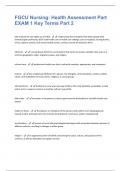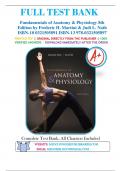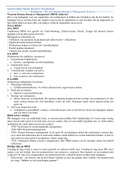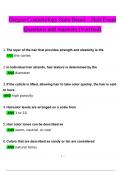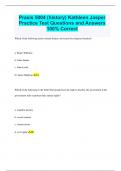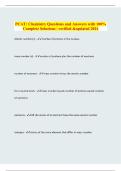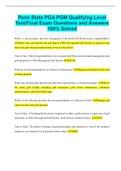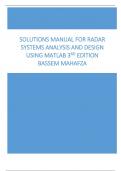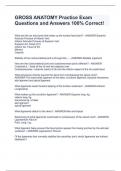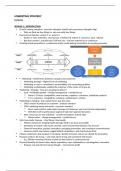Exam (elaborations)
FGCU Nursing: Health Assessment Part EXAM 1 Key Terms Part 2 Updated 2024/2025 Verified 100%
- Course
- Institution
title VI (6) of the civil rights act of 1964 - a federal law that mandates that when people with limited English proficiency (LEP) seek health care in health care settings such as hospitals, nursing homes, clinics, daycare centers, and mental health centers, services cannot be denied to them eth...
[Show more]
